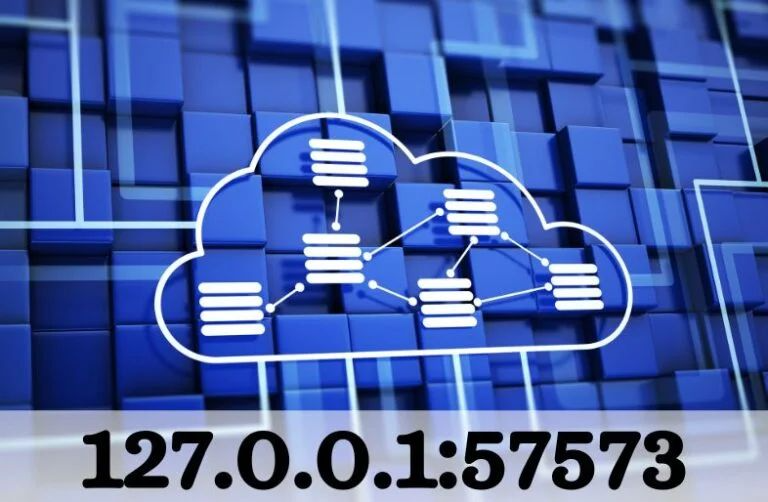Exploring the Significance of 127.0.0.1:57573
Discover the Significance of 127.0.0.1:57573 in local development, its applications, and best practices for leveraging localhost effectively in your projects.
Introduction
The networking and web development world often utilizes specific IP addresses to route traffic and access local services. Among these addresses, 127.0.0.1 holds a prominent position, commonly called the local host. This address represents the local machine, enabling users to communicate with their system without external interference. In this blog post, we will delve into the intricacies of 127.0.0.1:57573, exploring its implications, applications, and the broader context of local networking.
Understanding Localhost and Its Importance
To fully grasp the Significance of 127.0.0.1:57573, we must first understand the concept of localhost. Localhost serves as a loopback network interface, allowing a computer to send and receive network packets to itself. Consequently, developers frequently use this address to test and develop applications without needing a live server. By utilizing 127.0.0.1, users can ensure that their applications run efficiently and securely. This local interface is vital for development and serves as a foundation for various services that operate on specific ports.
The Role of Port Numbers in Networking
Now, let’s discuss port numbers, explicitly focusing on 57573 in the context of 127.0.0.1:57573. Port numbers are essential components in network communications, as they help direct traffic to specific applications running on a server. Each application listens on a designated port, allowing users to interact with it seamlessly. Users specify 127.0.0.1:57573 to indicate they want to communicate with a service operating on port 57573 on their local machine. Understanding this relationship between IP addresses and port numbers is crucial for developers and network administrators.
Exploring the Use Cases of 127.0.0.1:57573
The applications of 127.0.0.1:57573 are diverse and essential for various development tasks. For instance, developers may use this address to access a local database server, enabling them to manipulate data efficiently during application testing. Additionally, web developers can host local websites, utilizing 127.0.0.1:57573 to preview real-time changes. This immediate feedback loop enhances productivity and allows developers to identify issues before deploying their applications to a live environment.

Testing and Debugging Applications
Regarding testing and debugging applications, 127.0.0.1:57573 plays a pivotal role. By running applications locally, developers can simulate various scenarios without the risk of affecting live systems. This testing method allows for identifying bugs and performance issues early in the development process. Furthermore, developers can utilize tools and frameworks to streamline their testing, ensuring the applications perform optimally before they go live.
Security Considerations in Using Localhost
While 127.0.0.1:57573 provides numerous advantages for developers, security remains a crucial concern. Operating on local hosts often creates a false sense of security, leading some developers to pay attention to proper security measures. Even though traffic is limited to the local machine, vulnerabilities can still arise. For instance, improperly configured applications might expose sensitive data or open backdoors to malicious attacks. Thus, it is essential to maintain strict security protocols even when operating within the confines 127.0.0.1:57573.
Tools and Technologies for Local Development
Several tools and technologies enhance the experience of using 127.0.0.1:57573 in local development. Integrated Development Environments (IDEs) like Visual Studio Code and JetBrains offer features that facilitate testing and debugging directly from the local host. Additionally, Docker enables developers to create isolated environments, ensuring that applications function correctly before deployment. These tools streamline development and contribute to more secure and efficient applications.
Networking Protocols and 127.0.0.1:57573
Understanding networking protocols is essential when discussing 127.0.0.1:57573. Protocols such as HTTP and FTP operate through port numbers to facilitate communication between clients and servers. For example, when users navigate 127.0.0.1:57573, their browser sends an HTTP request to the specified port. This interaction highlights the importance of understanding how various protocols operate over local networks, as it directly impacts the functionality of applications.
Real-World Applications of 127.0.0.1:57573
In practice, many real-world applications utilize 127.0.0.1:57573 for various purposes. For instance, developers may set up a local web server to run applications built with frameworks like React or Angular. By specifying 127.0.0.1:57573, they can preview their work without relying on external hosting services. This efficient local development approach allows greater flexibility in making changes and testing features in real time.
Best Practices for Using Localhost
When working with 127.0.0.1:57573, adhering to best practices can significantly enhance the development experience. First, developers should ensure their applications are properly configured to listen on the intended port. Secondly, they should maintain updated documentation for their local environments, enabling seamless collaboration with team members. Additionally, employing version control systems like Git ensures that code changes are tracked effectively, further streamlining the development process.
Troubleshooting Common Issues
Despite its advantages, developers may encounter issues when using 127.0.0.1:57573. For instance, port conflicts can arise if multiple applications attempt to use the same port. In such cases, developers must identify the conflicting application and terminate it or reconfigure it to use a different port. Additionally, firewall settings can sometimes block access to localhost, requiring developers to adjust their settings accordingly.

The Future of Local Development
As technology continues to evolve, the future of local development remains promising. With the rise of cloud computing and remote development environments, the role 127.0.0.1:57573 may shift, but it will continue to be a vital component of development workflows. Developers will increasingly leverage hybrid solutions, combining local and remote environments to create efficient and scalable applications. Understanding and utilizing local hosts will remain essential in this evolving landscape.
Learning Resources for Local Development
Numerous resources are available for those looking to deepen their understanding of 127.0.0.1:57573 and local development practices. Online courses, tutorials, and documentation from significant development platforms provide valuable insights into utilizing localhost effectively. Communities such as Stack Overflow and GitHub offer forums for developers to share their experiences and seek assistance. Engaging with these resources can significantly enhance a developer’s skill set and knowledge base.
Conclusion
127.0.0.1:57573 serves as a critical component in networking and development. By understanding its Significance, developers can harness its power to efficiently create, test, and deploy applications. While the landscape of technology continues to evolve, the importance of localhost remains steadfast, ensuring that developers have the tools they need to succeed in their endeavours.
Read Also: Understanding ethereum price:3aua0-pmgtk= fintechzoom














Post Comment